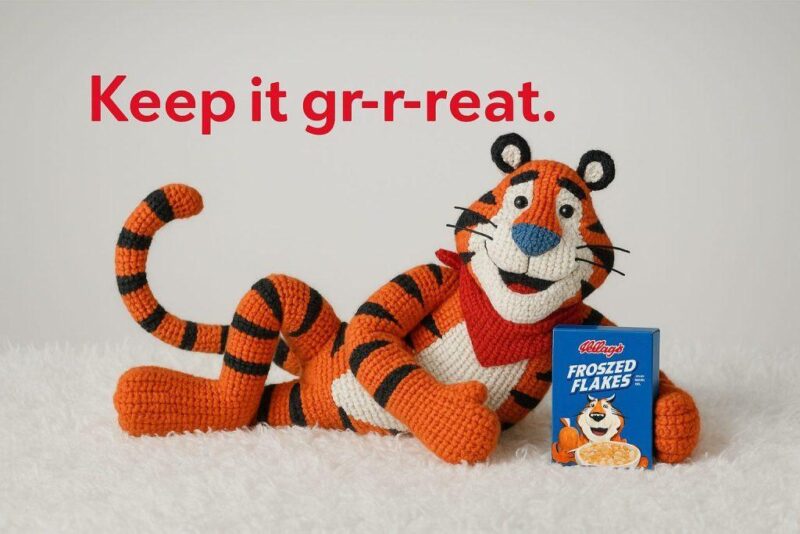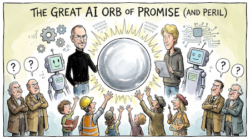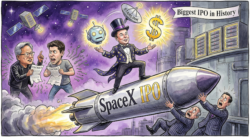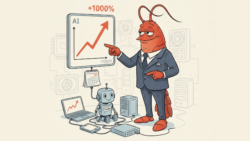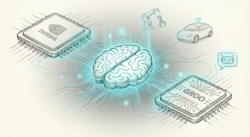In today’s issue:
- Do it, Studio Ghibli style
- Terry the Tea Tiger
- Me, Muppet style

OpenAI just released a massive update to the capabilities of ChatGPT. And it’s already causing utter chaos in the marketing and advertising industry.
While most people are putting the new updates to work on (weirdly) making every image they can think of look like a Studio Ghibli cartoon, there’s a very more impactful and serious consideration to take on board.


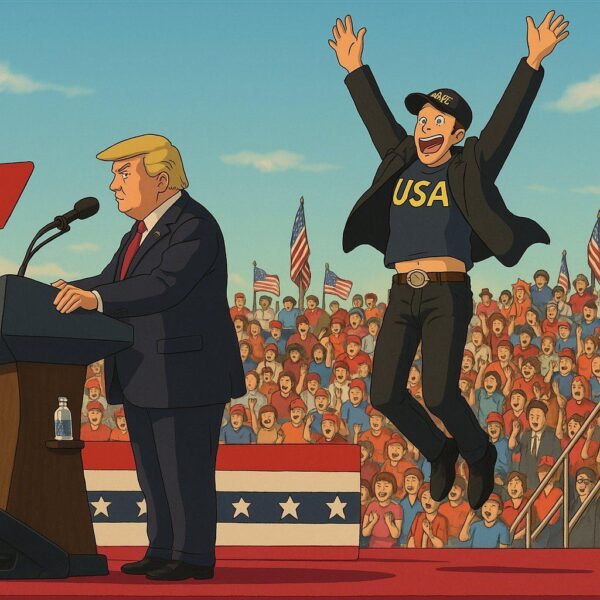
Albeit I did decide to see just how good the “Draw this image in the style of Studio Ghibli” thing was…
It’s pretty good:
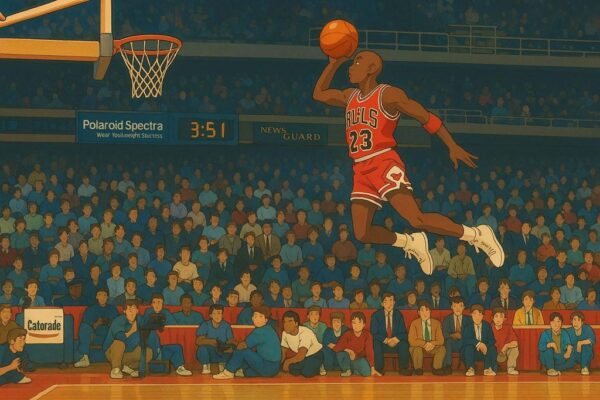
This massive update is down to the creative ability of ChatGPT to recreate images or just create images in particular styles.
What some smart people have figured out is that this also means the ability for ChatGPT to create things like infographics and advertising.
I’m going to show you what it can do with an example.
Here’s a pretty well-known ad:
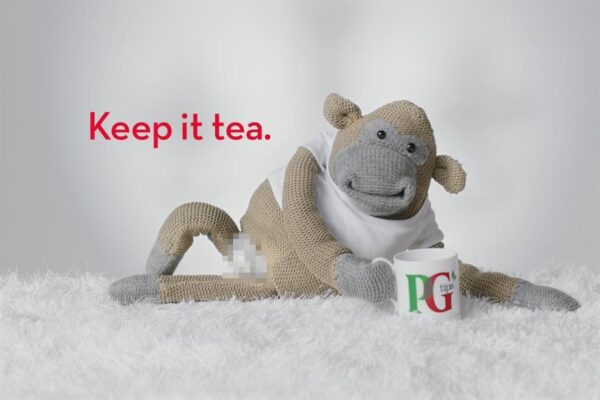
I uploaded the image to ChatGPT, then entered the prompt:
Recreate this ad, but make the monkey, Terry the Tiger, and make the product, Kellogg’s Frosted Flakes. Keep the character the same texture.
It took about three minutes to do. Here’s the end result:

I don’t know about you, but this blew me away.
The other thing that surprised me was its ability to draw on Terry the Tiger’s well-known catchphrase and integrate that into the advert. It was able to think about the idea behind the prompt without having to be specifically prompted.
Now, yes, I know this is just taking an existing piece of creative and then reproducing it – which opens a whole can of worms on intellectual property rights – but the glaring fact is how good it is and how creative it’s been.
I think this does two things.
- It actually helps creative agencies to produce even more creative content. Drawing on inspiration from others isn’t a bad thing, copying is. But surely when you can use these tools to enhance your output, that’s a net benefit.
- It allows smaller businesses that might not have the financial resources to scale up lean. So instead of having to pay massive fees and charges for marketing and advertising, they can get a ChatGPT subscription and look to at least start their own marketing and advertising, leaning on what ChatGPT can do.
I tend to think point 2 is the more exciting outcome. What AI is providing is the tools and resources for anyone to take an idea through to completion. Sure, the chances are still likely that many businesses and start-ups will fail, but at least it will be easier and require less capital to find out. It also likely makes the chances of success higher too. If even a 10% to 20% increase in those that make it is what this can achieve, that’s going to contribute up to £48 billion per year.
It’s a fun and exciting time to be alive! It’s well worth keeping tabs on what developments come next for ChatGPT.
Boomers & Busters 💰
AI and AI-related stocks moving and shaking up the markets this week. (All performance data below over the rolling week.) [Figures correct at time of writing.]

Boom 📈
- Predictive Oncology (NASDAQ:POAI) up 41%
- Tesla (NASDAQ:TSLA) up 15%
- Palantir (NASDAQ:PLTR) up 7%
Bust 📉
- Western Digital (NASDAQ:WDC) down 5%
- Broadcom (NASDAQ:AVGO) down 8%
- Vertiv (NYSE:VRT) down 8%
From the hive mind 🧠
- There’s a LOT going on in this headline… “Kim Jong Un watches as North Korean military tests AI suicide drone.” Enjoy.
- It took a while to catch up, and it was DeepSeek that led the way, but now ChatGPT, Gemini, Grok and finally Microsoft can show you how they reason and “think” in real time.
- Look, there are some cases at the moment where AI will be better than humans at things, some cases where it will be worse. The key thing is to use and cooperate with AI to perform better, be more productive and to achieve overall better outcomes.
Weirdest AI image of the day
This is one of mine today. It’s an image of me at CES, in the style of The Muppets courtesy of ChatGPT again.
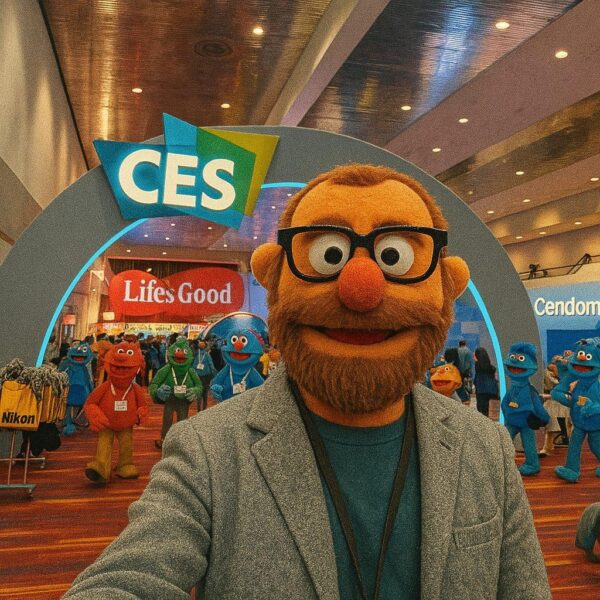
ChatGPT’s random quote of the day
“Simplicity is prerequisite for reliability.”
– Edsger W. Dijkstra
Thanks for reading and see you next time.

Sam Volkering
Contributing Editor, Investor’s Daily
Day Three Before the Mast: Liberation Day
[Originally published Wednesday 2 April]
Bill Bonner, from aboard the Queen Mary II
God from God,
Light from Light,
true God from true God,
begotten, not made;
of the same essence as the Father.
– Nicene Creed
Life aboard the Queen Mary resembles nothing so much as living in a retirement community. Most of the travelers have gray hair. Many have walkers or wheelchairs. Who else has the leisure to spend eight days crossing from Europe to America, or vice versa?
While we are solidly and irretrievably in the ‘retired’ age group ourselves, we have never had an opportunity to observe its habits and mores so closely.
As near as we can determine, oldsters no longer lust after wealth, status or sex. What they want now is comfort… and diversion.
We had expected a long sea-voyage full of empty hours with long stretches of time lounging on deck chairs, perhaps under a plaid wool blanket. In anticipation, we brought books with us – one an eye-opening biography of master spy James Jesus Angleton, the other a dense history of the role of energy in human civilization.
But the remarkable thing is that there is neither empty time nor empty space available. Seated in the coffee shop, we are wedged in between other members of the geriatric set. Sipping coffee. Chatting. Music, nondescript and annoying, fills the air.
Hardly a moment goes by unfilled. One is stuffed with dance lessons. Another shows us how to play bridge – beginner or intermediate. We can attend a lecture… or listen to a choir. From sun-up until after midnight… the music… the action… the entertainment and education go on… and on.
This morning, a fascinating talk explained the origins of the Nicene Creed. It arose out of an effort to treat Christian heretics as though they were terrorists! As the lecturer described the heresy – Arianism – we found ourselves in agreement with it. Today, most Christians are probably Arians without realizing it.
But back then, after the Arian Emperor – Valens – was roundly defeated by the Goths at Hadrianopolis, it was taken as a divine sign that the Arias (leader of the heretical pack) was evil. God had deserted the Romans.
Arias maintained that Christ was an extraordinary man, but not a God. The council of Nicaea determined, however, that he was wrong. Christ, God, and the Holy Spirit were one… indivisible. They shared the same ‘essence’ as the Father.
What is interesting about this is the pattern that emerges. Looking back at the 4th century AD, we see wars, murders, assassinations… with people up-in-arms over tiny differences in abstract Christian doctrine. Today, these conflicts seem meaningless and futile. And yet, they were once as vivid and as critical as the difference between MAGA and Woke cultures… or Russian and Ukrainian amies… today.
In the book on James Angleton, we see the same thing as it played out in the 20th century. A very intelligent man, he spent his whole career ferreting out heretics… in this case, communist ‘moles.’
Not only was this a complete waste of time (communism was its own worst enemy and soon to retreat, on its own), Angleton was incompetent. Unbeknownst to him, his best friend – British agent Kim Philby – was actually a Soviet spy the whole time.
(As a curious footnote, Philby was also a writer for one of our newsletters, the Fleet Street Letter published in London since the 1930s. Angleton, meanwhile, was fired from the CIA by Bill Colby, a consultant the letter Strategic Investment. Philby defected to the Soviet Union and died in 1988. Colby, who we knew personally, was discovered dead on the shores of the Chesapeake Bay in 1996. More on this story… as newly released CIA documents give us more information.)
In the meantime…
Today is supposed to be Liberation Day. What we are meant to be liberated from… and how… remains to be seen. But Dear Readers are advised to hold the confetti… and not to expect a parade.
First, so far, the economy seems to be shackled to slow growth and inflation CNBC:
First-quarter GDP growth will be just 0.3% as tariffs stoke stagflation conditions, says CNBC survey
Policy uncertainty and new sweeping tariffs from the Trump administration are combining to create a stagflationary outlook for the U.S. economy in the latest CNBC Rapid Update.
Golden Age?
All we see is base metal… and according to economists surveyed by Newsweek, it’s going to get worse:
Moody’s Chief Economist Mark Zandi on Thursday compared the current levels of uncertainty to those seen during 9/11 and the 2008 financial crash, having previously said that he felt the country was being “pushed into a recession” by Donald Trump’s tariff policies.
Newsweek goes on to list five causes or indications of an approaching recession:
- Falling consumer confidence
- Rising credit card default and delinquency rates
- Business Uncertainty… preventing or delaying capital investment
- Trade policy uncertainty
- Inflation expectations
Will we be liberated from these bad omens?
Or captured by them?
To be determined!
Regards,

Bill Bonner
Contributing Editor, Investor’s Daily
For more from Bill Bonner, visit www.bonnerprivateresearch.com
